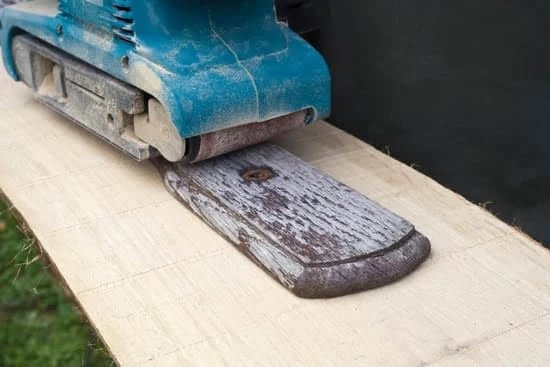Woodworking may seem like a hobby best suited for those who have access to spacious workshops and sprawling outdoor areas. However, it is entirely possible to embrace this fulfilling craft even in the midst of a bustling city.
In fact, woodworking can be an excellent way to escape the fast-paced urban lifestyle and connect with your creative side. With some planning, organization, and a little bit of innovation, you can create stunning pieces of furniture or art right in the comfort of your own urban dwelling.
Living in a city undoubtedly comes with its limitations, but it also offers unique advantages when it comes to woodworking. The availability of resources, such as materials and tools, is often abundant in urban environments. Furthermore, cities are home to thriving communities of woodworkers who share their knowledge and passion for the craft. By tapping into these resources and engaging with like-minded individuals, you can enhance your skills and expand your horizons within the world of woodworking.
One of the first steps to starting woodworking in a city is creating a dedicated workspace within your limited space. While it may not be possible to have an entire workshop at your disposal, there are creative ways to carve out a small area solely for your woodworking endeavors.
By maximizing storage options and utilizing versatile tools that can be easily stored away when not in use, you can make the most out of a confined space. Remember that efficiency and organization are key when working with limited room, so finding innovative solutions will enable you to pursue this hobby without feeling cramped or restricted.
Understanding the limitations and advantages of woodworking in a city
Woodworking in a city setting comes with its own unique set of limitations and advantages. Understanding these factors can help beginners navigate the challenges and make the most out of their woodworking journey.
Limitations
1. Space constraints: One of the main limitations of woodworking in a city is the limited space available for a dedicated workshop. City dwellers often have to make do with small apartments or shared living spaces, which may not provide enough room for large workbenches or extensive tool collections. However, this limitation can be overcome by optimizing the available space and making use of versatile, portable tools.
2. Noise restrictions: Another challenge in a city environment is noise restrictions that may prevent long periods of loud woodworking activities. For individuals living in apartments or condos, excessive noise from power tools may disturb neighbors or violate building regulations. To address this limitation, it is important to choose quieter tools or find alternative working hours when noise levels can be managed and minimized.
Advantages
1. Access to resources: One advantage of woodworking in a city is the accessibility to resources and services. In urban areas, there are usually numerous hardware stores, specialty wood suppliers, and equipment rental facilities readily available for woodworkers. Additionally, proximity to these resources allows for easier transportation of materials and equipment.
2. Community support: Cities often have vibrant woodworking communities where enthusiasts can connect with fellow woodworkers, share ideas, seek advice, and collaborate on projects. These communities provide valuable support networks that can help beginners learn new techniques, find inspiration, and gain confidence in their woodworking skills.
Understanding the limitations and advantages will inform how beginners approach their woodworking journey in a city setting. By embracing innovative solutions for limited spaces and utilizing the resources available, aspiring woodworkers can still pursue their craft passionately while enjoying the benefits that come with being part of an urban community.
Creating a dedicated workspace for woodworking in a limited space
One of the first steps in creating a dedicated workspace is to assess the available space. Look for areas such as a garage, basement, or even a spare room that can be transformed into a woodworking area. It is important to consider factors such as ventilation, lighting, and access to power outlets when selecting the space.
Once the space has been chosen, it is necessary to optimize it by organizing tools and equipment efficiently. Wall-mounted storage solutions are particularly useful in small workshops as they help maximize floor space. Utilizing shelves and pegboards will allow easy access to tools while keeping them off the work surface.
Additionally, investing in multi-purpose tools can help make the most out of limited space. For example, a table saw/cabinet combination or foldable workbenches can save valuable square footage. Portable toolboxes with wheels can also provide easy mobility for projects that require more flexibility.
To further enhance productivity and organization in a small woodworking space, setting up designated zones for different tasks can be beneficial. This could include areas for cutting materials, assembling projects, and finishing touches. Having separate spaces for each step allows for smoother workflow and minimizes clutter.
By creating a dedicated workspace for woodworking in a limited city setting, individuals can enjoy their hobby while being mindful of spatial constraints. With thoughtful planning and efficient utilization of available resources, even small workshops can become functional and productive environments.
| Woodworking Tools | Essential Equipment |
|---|---|
| 1. Circular Saw | 1. Workbench |
| 2. Jigsaw | 2. Dust Collection System |
| 3. Router | 3. Power Drill |
| 4. Random Orbit Sander | 4. Clamps |
| 5. Chisels and Carving Tools | 5. Safety Gear (Goggles, Ear Protection, etc.) |
Essential woodworking tools and equipment for beginners in a city
Woodworking, even in a city setting, can be a rewarding hobby that allows for creativity and the satisfaction of creating something with your own hands. To get started with woodworking, it is important to have the necessary tools and equipment. While a city environment may present limitations in terms of space and noise restrictions, there are still options available for beginners to set up their woodworking workspace.
Hand Tools
Hand tools are essential for any woodworking project, and they are especially suitable for small spaces in a city environment. Some basic hand tools that every beginner should consider include:
– A set of chisels: Chisels are versatile tools used for carving, shaping, and removing wood. A variety of sizes will allow you to tackle different projects with precision.
– A hand saw: Choose a crosscut or rip-cut saw depending on the type of cutting you’ll be doing. This tool can be used to cut wood into various shapes and sizes.
– Clamps: Clamps are useful for holding pieces of wood together while gluing or joining them. They come in different sizes and styles to accommodate various project needs.
Power Tools
While power tools can take up more space and require electrical outlets, they can significantly speed up the process of woodworking. Consider these essential power tools:
– A circular saw: This versatile tool allows you to make straight cuts quickly and efficiently. Look for one with adjustable settings to accommodate different depths and angles.
– A drill/driver: Invest in a good quality cordless drill/driver for drilling holes and driving screws into your projects.
Safety Equipment
Woodworking involves sharp tools and potentially hazardous materials, so it is crucial to prioritize safety when setting up your workspace. Some essential safety equipment includes:
– Safety glasses: Protect your eyes from flying debris while working with wood.
– Dust mask: Wood dust can be harmful when inhaled, so wearing a mask will help protect your respiratory system.
– Ear protection: Power tools can generate noise, so wearing earplugs or earmuffs is important to prevent hearing damage.
Remember to always read and follow the manufacturer’s instructions for safe use of tools and equipment. Additionally, it is recommended to have a fire extinguisher readily available in case of emergencies.
By gathering these essential woodworking tools and equipment, beginners in a city environment can begin their woodworking journey with confidence. Start small and gradually expand your collection as you gain more experience and undertake more complex projects. With the right tools, safety precautions, and dedication to learning, you’ll be creating beautiful pieces in no time.
Sourcing quality wood and materials in an urban environment
Woodworking requires quality wood and materials to create beautiful and durable pieces. However, sourcing these resources can be a challenge in urban environments. While cities may not have forests or lumberyards readily available, there are still ways to find quality wood and materials for your woodworking projects.
1. Local Hardware Stores: Many hardware stores in cities carry a variety of wood species and sizes that may be suitable for your woodworking needs. While the selection might not be as extensive as a specialized lumberyard, they often have options like pine, oak, and maple. Additionally, you can find tools, fasteners, glues, finishes, and other materials necessary for your projects.
2. Online Retailers: The internet has opened up a vast array of possibilities when it comes to sourcing wood and materials for woodworking. There are numerous online retailers that offer a wide variety of wood species and cuts that can be delivered right to your doorstep. Take advantage of online marketplaces such as Amazon or specialized websites that focus specifically on woodworking supplies.
3. Salvaged Wood: In an urban environment, there are often opportunities to salvage wood from old furniture, construction sites, or even discarded pallets. By repurposing salvaged wood, not only are you reducing waste but also adding character to your projects with unique grain patterns and textures. However, ensure that the salvaged wood is safe to use by checking for any signs of mold or rot.
4. Woodworking Communities: Joining local woodworking communities or forums can provide valuable insights into sourcing quality wood and materials in an urban environment. Members often share recommendations on where to find reliable suppliers or even arrange group buys to get better deals on bulk purchases.
By using these methods and exploring different avenues for sourcing quality wood and materials in an urban environment, you will be equipped with everything you need to start your woodworking journey in the city while still creating beautiful pieces that showcase your skills and creativity.
Exploring woodworking resources and communities in the city
When starting out on your woodworking journey in a city, it is important to connect with like-minded individuals who share your passion for this craft. Thankfully, many cities offer a wealth of resources and communities that can provide valuable support and guidance as you develop your skills.
One way to find woodworking resources and communities in your city is by attending local trade shows and events. These gatherings often showcase the latest tools, techniques, and innovations in woodworking. They also provide an opportunity to meet experienced woodworkers who can offer advice and recommendations based on their own experiences.
Another option is to join a woodworking club or association. These groups are made up of enthusiasts who gather regularly to inspire, educate, and collaborate with one another. By joining such a community, you gain access to workshops, mentorship programs, and shared workspaces where you can learn from experienced woodworkers while building connections with fellow beginners.
Furthermore, many cities have specialized woodworking stores or suppliers that cater specifically to the needs of woodworkers. These stores not only offer a wide selection of tools, materials, and equipment but also serve as gathering places where you can engage in discussions with knowledgeable staff members or even attend workshops hosted by experts.
Finding relevant information online is another great way to explore woodworking resources in the city. Social media platforms such as Facebook or Instagram often have dedicated groups or profiles specifically for woodworkers in certain cities or regions. Joining these groups allows you to connect with other enthusiasts who might be able to point you towards local classes or workshops that align with your interests.
| Resource | Description |
|---|---|
| Local trade shows and events | Attend gatherings showcasing tools, techniques, and innovations in woodworking |
| Woodworking clubs and associations | Join groups offering workshops, mentorship programs, and shared workspaces |
| Specialized woodworking stores or suppliers | Visit stores with wide selections of tools, materials, equipment, and attend workshops hosted by experts |
| Social media groups or profiles | Join online communities to connect with local woodworkers and find information on classes or workshops |
By taking advantage of these resources and communities available in your city, you can surround yourself with experienced individuals who can provide valuable guidance, support, and inspiration as you venture further into the world of woodworking.
Learning woodworking techniques through online tutorials and courses
One of the advantages of learning woodworking techniques online is the flexibility it offers. Online tutorials and courses allow individuals to learn at their own pace and according to their own schedule. This is especially beneficial for those living in a city where time can be limited due to work or other commitments. Additionally, online resources often provide step-by-step instructions, detailed videos, and even interactive elements that enhance the learning experience.
When embarking on online woodworking lessons, it is important to start with the basics. There are numerous beginner-friendly tutorials and courses available that cover essential concepts such as tool usage, joinery techniques, safety precautions, and project planning. Many websites and platforms offer comprehensive woodworking curriculums designed specifically for beginners, guiding them through each skill level until they have a solid foundation.
To further enhance the learning experience, consider joining online woodworking communities or forums. These platforms allow individuals to interact with fellow woodworkers, ask questions, share experiences, and receive feedback on their projects. Building connections within these communities can provide valuable insights, inspiration for new projects, and even potential mentorship opportunities.
Safety precautions and best practices for woodworking in a small space
Woodworking, while fulfilling, can also be a potentially dangerous hobby if proper safety precautions are not taken. This is especially true when working in a small space in a city setting, where there may be limited room to maneuver and less access to natural ventilation. Therefore, it is vital for beginners to understand and implement safety precautions and best practices to ensure their well-being during woodworking projects.
Wear Personal Protective Equipment (PPE)
When working with wood, it is crucial to protect yourself from potential hazards. Always wear appropriate PPE such as safety glasses or goggles to shield your eyes from flying debris, ear protection to minimize the impact of loud machinery noise, and a dust mask or respirator to prevent inhaling harmful particles.
Keep your workspace organized
In a small space, clutter can increase the risk of accidents. To maintain a safe environment for woodworking, regularly tidy up your workspace by putting away tools after use, storing materials properly, and clearing any obstructions that may impede your movement.
Ensure proper ventilation
Working with wood often involves sawing, sanding, and applying finishes that release dust and fumes into the air. In a small space without adequate ventilation, these airborne particles can accumulate quickly and pose health risks. To combat this issue, consider using portable fans or opening windows whenever possible to improve air circulation in your workspace.
Secure your workpiece
A stable workpiece is essential for safe woodworking. Ensure that your work surface is sturdy and properly secured before starting any cutting or shaping tasks. The use of clamps or vises can help hold your workpiece securely in place and reduce the chance of accidents caused by slipping or shifting materials.
Familiarize yourself with tool safety guidelines
Different woodworking tools have specific safety guidelines that should be understood and followed. Before using any tool, read the manufacturer’s instructions carefully and familiarize yourself with proper usage, maintenance, and safety procedures. Additionally, never operate power tools without proper training or when feeling fatigued or distracted.
By prioritizing safety precautions and adhering to best practices even in a small woodworking space, beginners can enjoy their hobby without compromising their well-being. Remember, it is always better to take extra time to ensure safety than to risk an accident that could have been prevented.
Starting small woodworking projects for beginners in a city
Woodworking can be an incredibly rewarding hobby, even in a city setting where space is often limited. Whether you’re a beginner looking to learn the craft or someone with some experience looking to continue their woodworking journey, starting small woodworking projects can be a great way to get started and practice your skills. Here are some tips and ideas to help you embark on your woodworking journey in the city.
Choosing the right projects
When starting out, it’s essential to choose small woodworking projects that are suitable for your skill level and available space. Look for projects that require minimal tools and equipment and can be completed within a reasonable timeframe.
Some popular small projects for beginners include making cutting boards, bookends, picture frames, or even simple shelving units. These projects not only allow you to practice fundamental skills such as measuring, cutting, and joining wood pieces but also offer practical results that can be used or gifted.
Working with limited space
In a city setting where workspace is often scarce, it’s important to maximize the available space efficiently. Consider setting up a dedicated workbench against a wall or utilizing multipurpose furniture such as a folding table that can serve as both workspace and storage when not in use.
Wall-mounted tool organizers are also great for keeping your tools organized without taking up valuable floor space. Additionally, consider investing in portable power tools that can be easily stored away after use.
Making use of reclaimed materials
One advantage of woodworking in the city is the abundance of reclaimed materials available. Look out for discarded wooden pallets, crates, or old furniture that can be repurposed into beautiful woodworking projects. Not only does this help reduce waste and save money on buying new materials but it also adds character and uniqueness to your creations.
Starting small woodworking projects in a city opens up endless possibilities for creativity and learning. Don’t be afraid to experiment with different techniques, designs, and materials. Remember to start with simple projects and gradually work your way up as you gain more confidence and experience. Enjoy the process of creating something beautiful with your own hands while embracing the unique challenges and opportunities that come with woodworking in a city environment.
Overcoming challenges and finding inspiration in city surroundings for unique woodworking projects
Woodworking in a city setting may come with its own set of challenges, such as limited space and access to materials. However, embracing these challenges can also lead to unique and innovative woodworking projects that are inspired by the urban environment. In this section, we will explore how you can overcome these challenges and find inspiration in your city surroundings for your woodworking projects.
One of the key challenges in woodworking in a city is the limited space available for a workshop. However, this limitation can be turned into an advantage by encouraging creativity and resourcefulness. Consider utilizing multi-purpose furniture or transforming a small corner of your apartment into a dedicated woodworking space. You could also explore shared workshop spaces or makerspaces that offer tools and equipment for rent on an hourly basis.
When it comes to finding inspiration in city surroundings for your woodworking projects, look no further than the architecture, landmarks, and materials around you. Take walks around your neighborhood or visit local parks to observe unique patterns, textures, and shapes that can be incorporated into your designs. For example, the geometric patterns of skyscrapers or the organic forms of leaves might inspire new furniture designs or woodcarvings.
Additionally, consider repurposing materials that are readily available in urban areas. Construction sites often discard old wooden pallets or crates that could be used as reclaimed lumber for your projects. Antique shops or flea markets might have hidden treasures waiting to be transformed into one-of-a-kind pieces. By incorporating these urban elements into your woodworking projects, you not only add a distinctive touch but also reduce waste.
| Challenge | Solution |
|---|---|
| Limited space | Utilize multi-purpose furniture or shared workshop spaces. |
| Finding inspiration | Observe and incorporate urban patterns, textures, and shapes; repurpose materials found in the city. |
Conclusion
In conclusion, despite the challenges that come with woodworking in a city environment, it is a fulfilling and rewarding hobby for anyone who is passionate about creating with their hands. By understanding the limitations and advantages of working in a small space, creating a dedicated workspace, sourcing quality materials, and joining woodworking communities, you can fully embrace the art of woodworking even in an urban setting.
One of the joys of woodworking is sharing your creations with others. In a city where creativity can flourish, there are numerous ways to showcase your work. Consider participating in local craft fairs or markets to gain exposure for your pieces. You can also join online woodworking communities or start your own social media accounts to connect with fellow woodworkers and share your projects with a wider audience.
Additionally, don’t be afraid to think outside the box when it comes to finding inspiration within the city. The urban landscape offers unique opportunities for woodworking projects that reflect the environment you live in. Whether it’s repurposing salvaged materials or incorporating elements of city architecture into your designs, let the surroundings fuel your imagination and take your woodworking skills to new heights.
Woodworking in a city may present its own set of challenges, but with determination and creativity, anyone can find fulfillment in this craft. By embracing the art of woodworking and sharing your creations with others, you contribute to preserving this age-old tradition while leaving behind your own mark on the world.
So grab your tools, set up your workspace, and let the sawdust fly – there’s no limit to what you can achieve as a woodworker in a city environment.

Hi everyone! I’m a woodworker and blogger, and this is my woodworking blog. In my blog, I share tips and tricks for woodworkers of all skill levels, as well as project ideas that you can try yourself.





